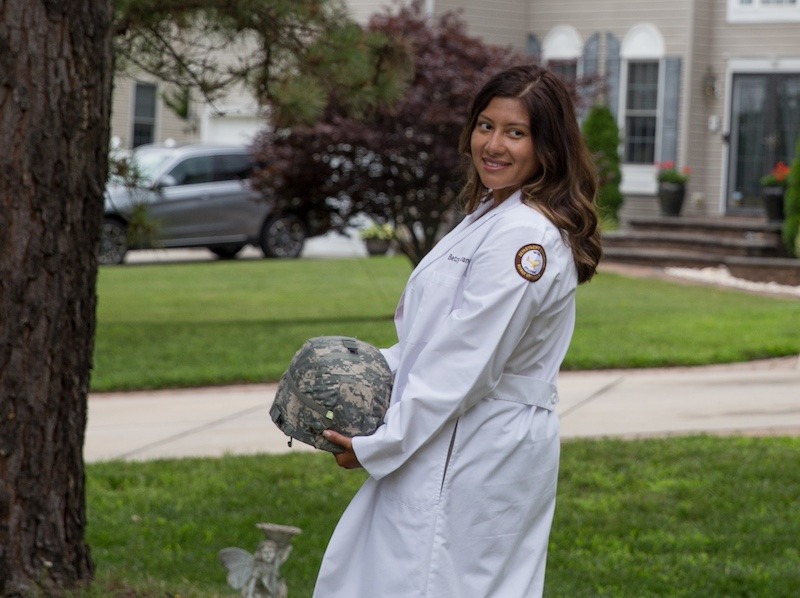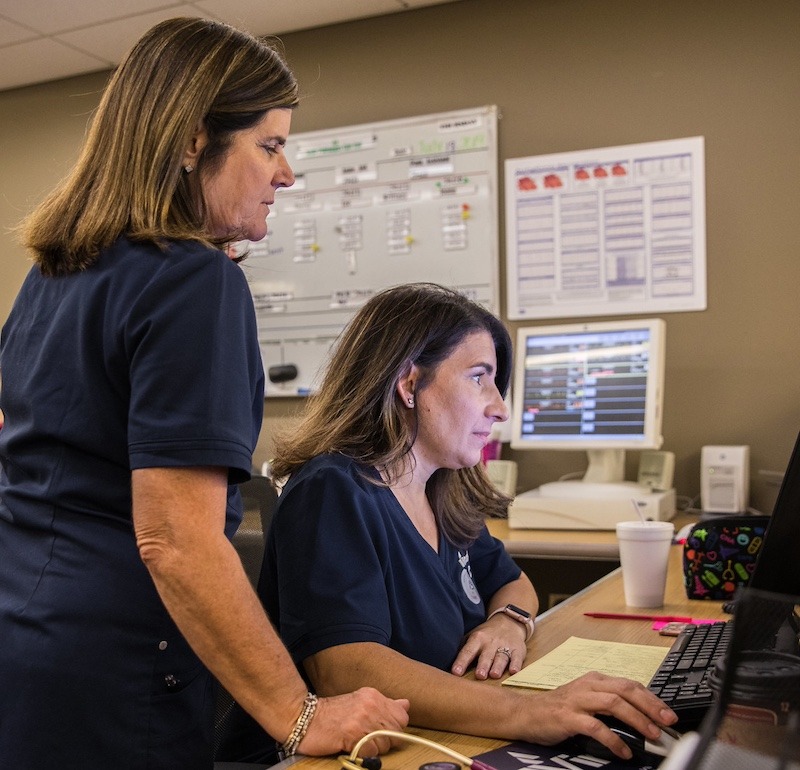Introduction to What is an Adult Gerontology Nurse Practitioner
As our population ages, the need for healthcare professionals specializing in adult and geriatric care grows significantly. Adult Gerontology Nurse Practitioners (AGNPs), also known as Adult Gerontology Primary Care Nurse Practitioners (AGPCNPs), are crucial in promoting health, managing chronic conditions, and providing comprehensive care to adults throughout their lives. These advanced practice nurses possess the skills to assess, diagnose, and treat various health issues, ensuring personalized and effective patient care. At Rowan University, we are committed to preparing the next generation of AGNPs through rigorous educational programs that emphasize clinical excellence and compassionate care.

Understanding the Role of an Adult Gerontology Nurse Practitioner
Adult Gerontology Nurse Practitioners (AGNPs) are essential in the healthcare system, focusing on the comprehensive care of adults, particularly with older populations. Their duties include conducting health assessments, diagnosing and managing acute and chronic illnesses, and developing personalized treatment plans. AGNPs provide preventive care, health education, and counseling, ensuring holistic and patient-centered care.
The importance of geriatric care is increasing as the population ages, necessitating healthcare professionals who can address the unique challenges faced by older adults. AGNPs, including Adult Gerontology Primary Care Nurse Practitioners (AGPCNPs), are trained to manage multiple comorbidities, medication management, and understand the social determinants of health impacting this demographic.
Collaboration is vital for AGNPs, who often work with physicians, nurses, social workers, and other healthcare providers. This teamwork ensures patients receive coordinated, individualized care, enhancing quality and improving outcomes. AGNPs significantly contribute to the well-being of older adults by integrating their expertise with other healthcare professionals.
Educational Pathways to Becoming an Adult Gerontology Nurse Practitioner
Becoming an Adult Gerontology Nurse Practitioner (AGNP) requires a solid educational foundation and a commitment to ongoing professional development. Candidates typically need to complete a Master of Science in Nursing (MSN) or a Doctor of Nursing Practice (DNP) degree with a focus on adult and geriatric care. These programs often offer specializations that allow nurses to tailor their education to specific interests, such as acute or primary care settings.
Rowan University offers an online Master of Science in Nursing: Adult Gerontology Acute Care Nurse Practitioner program. This online program blends the flexibility of learning on your timeline, with in-person clinical experiences.

Choosing an accredited program from a reputable institution is crucial to ensure the education meets professional standards. Rowan University’s AGNP programs are accredited and designed to equip future practitioners with the necessary skills to excel. Students gain hands-on experience through clinical placements, enhancing their ability to provide high-quality care to adults and the elderly.
In addition to formal education, AGNPs must engage in continuing education and certification to maintain licensure and stay current with advancements in the field. Professional organizations offer certification options that validate an AGNP’s expertise and commitment to best practices. Regular workshops, conferences, and additional certifications are excellent ways for AGNPs, including those pursuing careers as Gerontology Nurse Practitioners, to enhance their knowledge and skills.
Core Competencies and Skills Required for Adult Gerontology Nurse Practitioners
Adult Gerontology Nurse Practitioners (AGNPs) play a crucial role in healthcare, particularly in addressing the needs of older adults. Core competencies for AGNPs include developing clinical skills specific to adult gerontology care, such as comprehensive physical assessments, medication management, and creating individualized care plans for both acute and chronic health issues. Mastery of these skills ensures high-quality, evidence-based care.
Effective communication and patient assessment techniques are essential for AGNPs. They must excel in building rapport, conducting thorough interviews, and utilizing active listening to accurately gauge patient needs. Clear communication improves patient experiences and health outcomes, as AGNPs must explain complex medical information to patients and their families.
Cultural competency is also critical for AGNPs, especially in geriatric care. Understanding and respecting diverse cultural backgrounds enables AGNPs to tailor their approach to meet individual patient preferences and values. This cultural sensitivity fosters trust and improves engagement in care, leading to better health outcomes for aging populations.
Clinical Experience and Practicum Opportunities for Adult Gerontology Nurse Practitioners
As an Adult Gerontology Nurse Practitioner (AGNP) student at Rowan University, you will benefit from diverse clinical placements designed to enhance learning and professional skills. Our program offers opportunities across various healthcare settings, including hospitals, outpatient clinics, long-term care facilities, and community health organizations. This variety ensures comprehensive exposure to adult and geriatric care, preparing you for the multifaceted challenges of the nursing profession.
Hands-on training is a cornerstone of our AGNP curriculum. You will engage directly with patients under the supervision of experienced professionals, applying theoretical knowledge in real-world scenarios. This practical experience bolsters clinical skills and builds confidence in delivering high-quality care to diverse patient populations.
Throughout your clinical rotations, mentorship and support are paramount. Our faculty and clinical preceptors are dedicated to guiding you, offering insights and feedback crucial for your development. Regular check-ins and evaluations ensure you meet learning objectives while fostering an environment where you feel comfortable seeking advice. This supportive framework empowers you to thrive as an Adult Gerontology Nurse Practitioner and equips you with the skills necessary to excel in your future career.

Career Outlook and Professional Development for Adult Gerontology Nurse Practitioners
The demand for Adult Gerontology Nurse Practitioners (AGNPs) is rising due to an aging population and an increased focus on preventive care. As healthcare systems evolve, AGNPs are integral in managing complex health conditions among adults and the elderly. According to the Bureau of Labor Statistics, the employment of nurse practitioners, including AGNPs, is projected to grow by 45% from 2020 to 2030, significantly faster than the average for all occupations. This growth translates into abundant job opportunities across various healthcare settings.
AGNPs looking to advance their careers have numerous paths available. Many choose to specialize further in areas such as geriatric care, palliative care, or healthcare administration. Pursuing additional certifications or a Doctor of Nursing Practice (DNP) can lead to leadership roles or academic positions, allowing AGNPs to influence the next generation of healthcare professionals.
Networking and professional organizations are crucial for AGNPs’ career development. Joining associations like the American Association of Nurse Practitioners (AANP) or the Gerontological Advanced Practice Nurses Association (GAPNA) provides valuable resources for continuing education, mentorship, and professional connections. These organizations host conferences and workshops that help AGNPs stay updated on industry trends and best practices, ensuring they remain competitive in the evolving healthcare landscape.
Ready to take the next step in your nursing career?
Interested in learning more first?
Check out these related blogs to explore further the benefits of an online master’s degree in nursing in the profession. These resources will help you make an informed decision about your educational path and next steps within the nursing field.

